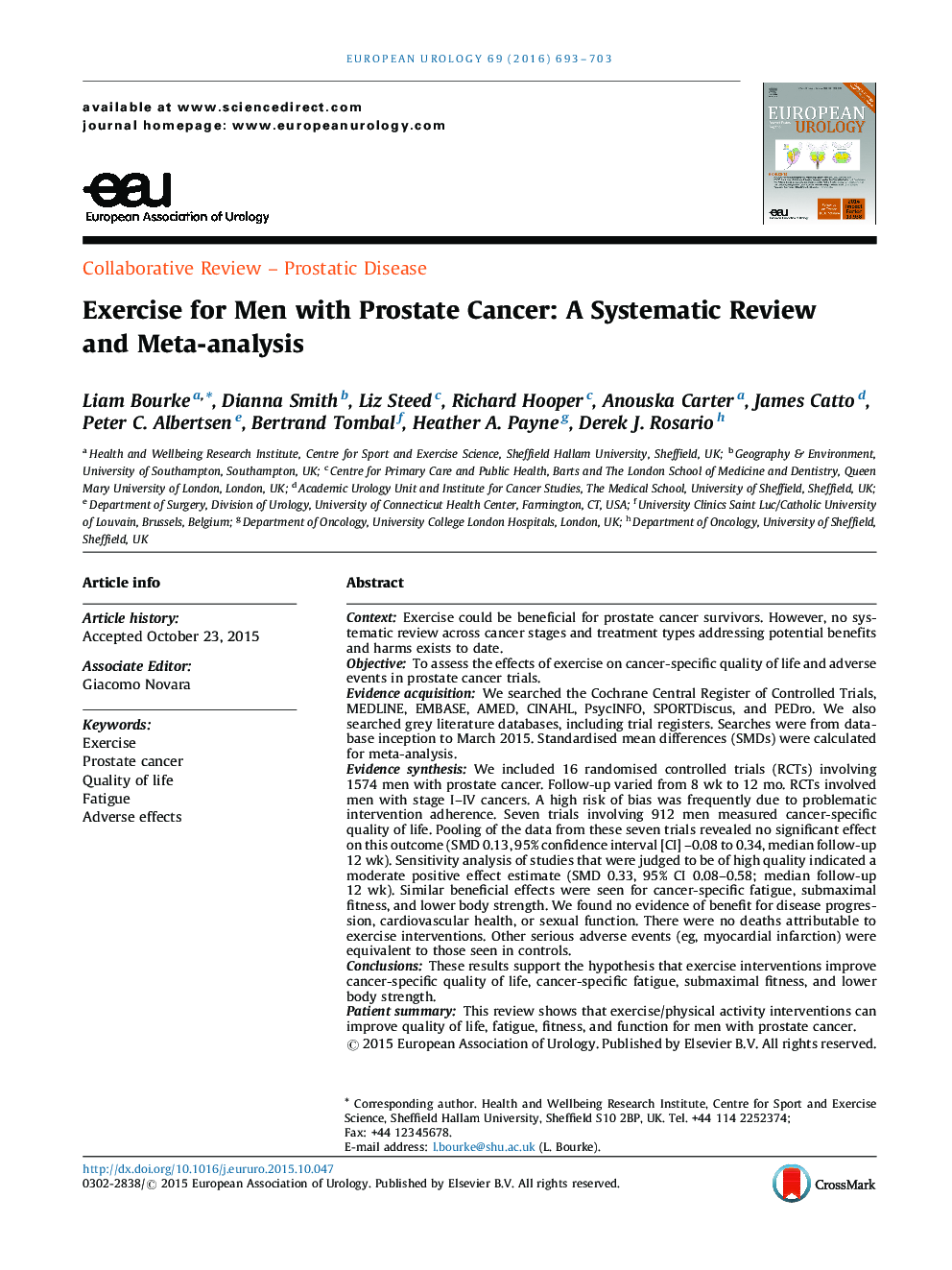| کد مقاله | کد نشریه | سال انتشار | مقاله انگلیسی | نسخه تمام متن |
|---|---|---|---|---|
| 6177545 | 1253103 | 2016 | 11 صفحه PDF | دانلود رایگان |
ContextExercise could be beneficial for prostate cancer survivors. However, no systematic review across cancer stages and treatment types addressing potential benefits and harms exists to date.ObjectiveTo assess the effects of exercise on cancer-specific quality of life and adverse events in prostate cancer trials.Evidence acquisitionWe searched the Cochrane Central Register of Controlled Trials, MEDLINE, EMBASE, AMED, CINAHL, PsycINFO, SPORTDiscus, and PEDro. We also searched grey literature databases, including trial registers. Searches were from database inception to March 2015. Standardised mean differences (SMDs) were calculated for meta-analysis.Evidence synthesisWe included 16 randomised controlled trials (RCTs) involving 1574 men with prostate cancer. Follow-up varied from 8 wk to 12 mo. RCTs involved men with stage I-IV cancers. A high risk of bias was frequently due to problematic intervention adherence. Seven trials involving 912 men measured cancer-specific quality of life. Pooling of the data from these seven trials revealed no significant effect on this outcome (SMD 0.13, 95% confidence interval [CI] -0.08 to 0.34, median follow-up 12 wk). Sensitivity analysis of studies that were judged to be of high quality indicated a moderate positive effect estimate (SMD 0.33, 95% CI 0.08-0.58; median follow-up 12 wk). Similar beneficial effects were seen for cancer-specific fatigue, submaximal fitness, and lower body strength. We found no evidence of benefit for disease progression, cardiovascular health, or sexual function. There were no deaths attributable to exercise interventions. Other serious adverse events (eg, myocardial infarction) were equivalent to those seen in controls.ConclusionsThese results support the hypothesis that exercise interventions improve cancer-specific quality of life, cancer-specific fatigue, submaximal fitness, and lower body strength.Patient summaryThis review shows that exercise/physical activity interventions can improve quality of life, fatigue, fitness, and function for men with prostate cancer.
Journal: European Urology - Volume 69, Issue 4, April 2016, Pages 693-703
